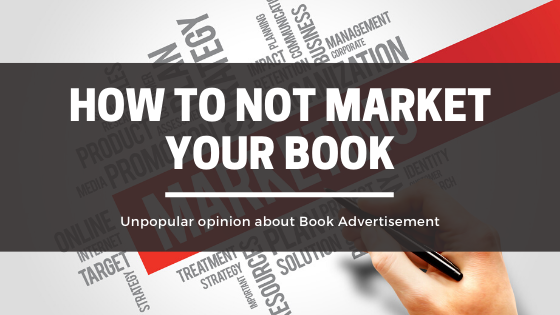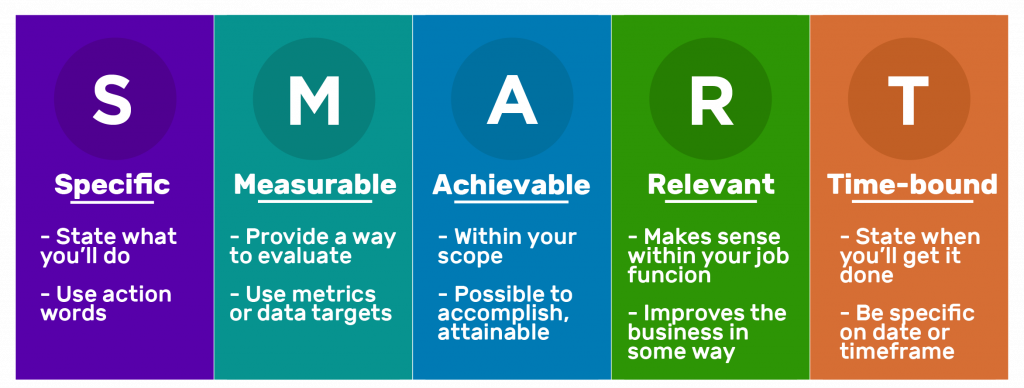
When was the last time you purchased a novel solely because of a book advertisement – without caring a whit about the author or the publisher?
Probably never, right? Or in the best-case scenario, when you were thirteen?
Let me try one more time: How often do you buy a product without checking the brand’s name? I don’t have to answer on your behalf. But I must remind you something:
“A book is a product. An author is a brand. And brand matters to the customers. Just like any new company in the market, young writers also need an author branding strategy to identify, target, and attract their readers.”
Tweet
And yet, we often hear writers say this:
“I am an author. My job is limited to writing. I’m not a salesperson with a book marketing plan. How can I ever market my book?”
We hear you. 90% of the authors shy away from book marketing and prefer hiring marketers or book advertisement services.
Here’s a truth about self-promotion and book-marketing no one tells you about: “Books don’t sell themselves.”
Writing and Book Marketing Should Go Hand-in-Hand
Now some of you may wonder how you can market your book BEFORE it’s published? To understand this better, let’s add one more word here: Networking.

Networking is the exchange of ideas and information among people with a common interest. It is a proven, time-tested strategy used by professionals to expand their acquaintance’s circle.
I know the idea of interacting with people scares most of the writers away. The majority of us belong to a notorious introvert group. But let’s face it: Writing a good book is not enough – especially for debut authors.
Now Imagine these two scenarios:
A worked on her YA romance for three years – putting words on a page, honing her skills, and making her story error-proof.
B also worked on her YA romance novel for three years. But, alongside putting her time in the chair, she shared her friend’s work on social media, said hello to influencers, reached out to a podcaster, and frequently updated her followers about her book’s progress.
Of these two scenarios, who’d have a better chance as a debut author: A or B?
Before you begin the book advertisement, start Networking.
Your success as a writer is not proportional to your writing skills. Let that sink in.
And there’s a golden rule of Networking: Give Consistently, receive occasionally.
‘You’ve to start building relationships and network long before you need them.’
I know it’s not a favorite piece of advice for most authors. But like anything worth having, you need to put in the work, at least 6-12 months before you launch your book or begin a book advertisement.
You need to create an emotional connection with your prospective readers – long before they’ve had a chance to meet your characters. Networking is about building and nurturing mutually-beneficial, long-term relationships. When you invest in bonds, it pays you back throughout you
Tweet
Effective Networking is the foundation for building an author platform.
Author Networking Strategies to follow before Book advertisement
- Social Media for Authors
Use the power of social media to your advantage. You don’t even need to leave your room! Get online, be a part of the Q & A session, touch-base with the world out there, and tell them what’s going in yours. Social media sites have a great community of fans and supporters – leverage it!
- The Freebie Philosophy
Freebies are a great way of attracting attention, but only if you do it right, and share it with the right people. If you’re a fiction author, you can write a short story and share it as a freebie. If you write non-fiction, you can create a workbook, a weekly journal template, cheat sheets, or guides about your niche. For more author giveaway ideas, check out Kelsey’s cheat sheet.
- Start blogging
Not every debut author can burn cash with their first novel like J.K. Rowling. You’ve to work your way to the top. And the journey starts with blogging. Launch a website with simple set up, write about the topics you’re interested in, and keep it up-to-date. The point is to increase your visibility among your target audience.
- Reach out to other authors
Yes, you cannot expect influencers to give you much time. But you can always form or join a like-minded group of active, positive, and motivated peers who are interested in similar genres.
- Try different Writer’s Conferences and Events
Both veteran and novice writers should attend writer’s conferences. It’s a great way to make connections with authors, literary agents, and publishers. And the best part – you find yourself surrounded by so many authors and people who love to read and write. You find yourself at home.
4 Book Marketing Strategies for Self-Published Authors
Let’s start this section with a cardinal rule of book marketing that will never change:
#1. Reader’s First: Focus on providing value
Can you think back to the last time you bought a non-essential item – what was going through your head?
At their essence, readers are always looking for value. For young, first-time authors, giving importance to a reader is what is going to win them that reader.
Ask them to buy your book when you know it has something that can help them. Why? Because value brings loyalty. In case you’re thinking how fictional novels and stories can offer ‘value,’ here’s the answer:
- Inspire
- Motivate
- Challenge
- Entertain
- Help
- Guide
- Adventure
In conclusion, whatever you write should connect with the reader and have a purpose. Book marketing is not the same as self-promotion. And those who argue they write for themselves, there’s a name for such a style of writing – Journaling.
Warning: Marketing is not manipulating either. Manipulating a person with a mirage blurb or fake reviews to convert them into a reader will not keep you in the game for long.
#2. Give Consistently, receive occasionally.
Social Media must be about 90% giving and 10% receiving. As you read this blog post, make this a mantra. Support your followers through free content, start getting involved. Instead of constant self-promotion, dedicate an hour of your day just to do these things:
- Retweet
- Creating interesting posts that inform or entertain your followers
- Make real connections, real friends, and interact a lot.
- Help
- Follow Back
- Offer Giveaways
In short, Connect. Inform. Engage. Communicate. Share. While you are building these relationships, think less about what you want, and more about what you can give because giving is the best way of establishing a lasting connection and real relationships.
#3. Set Short-term ‘SMART’ Self-Promotion Goals
To accomplish a long-term goal of book marketing, you’ve to establish short-term self-promotional goals. These goals are the ones you want to achieve in a month or less. They are actionable and flexible. And if one goal is not working, you can tweak your strategy to try a different approach.
SMART stands for:
- Specific
- Measurable
- Aspirational
- Realistics
- Time-Bound

To get a head start on SMART self-promotional goals, here are a few examples:
- Keeping a regular presence on social media: 3 posts a day
- 70 Twitter followers in a week
- 50 Facebook page likes a day
- Creating a Hashtag that’s exclusively about your blog/book
- Sending One Newsletters or Email blast a week
- Get more website engagement
- Drive more click-through on the paid ads
- Develop stronger relationships
#4. Keep What’s Working, Drop What’s Not
Your next step should be to measure, manage, and analyze the performance of your posts. Understanding analytics will allow you to be more efficient at your job.
From Facebook, Instagram to Pinterest, you have got a chance to review real-time post engagement. These insights help you learn a great deal about your followers, people who are interacting with your post, stories, or post your audience engages with the most.
Similarly, you can track weekly reaches, interactions, and impressions for both paid and organic activity. And with these impressions, you can assess what’s working for you and what’s not.
To sum it up, if Tumblr is not serving you the purpose, drop it. If Instagram is getting you more followers, leverage it!
Make a book advertisement effective with Networking
I know writers are often uncomfortable with large crowds. We are not good at being a social butterfly. Our work is a solitary one, with just us and our laptop screens.
Networking online can be tough and offline, tougher. But you’ve got to step out of your self-imposed boundaries. And here’s a tip that can help you get the most out of your experience:
Every writer feels the same way about Networking (I can say this for the 200 or so writers present in a conference room of 250). When you step out a little, you give confidence to everyone else. You make it safe and comfortable for them.
To sell books and make your book advertisement effective, indie authors must invest their time and resources in connecting with the right people. Your author and reader’s network is undoubtedly the most crucial arsenal you can build before launching your book in the market.

Pingback: Book Blurb Examples and 6 ways on how to write one for your book!
Pingback: How to Make Money on UpWork 2020 (100% Genuine): $1,183 in 3 Weeks | OakWords
Pingback: Literary Agents' Tips on 'How to Write a Query Letter'?